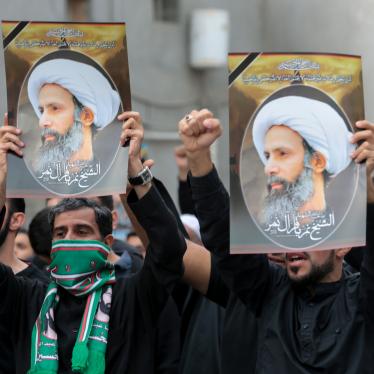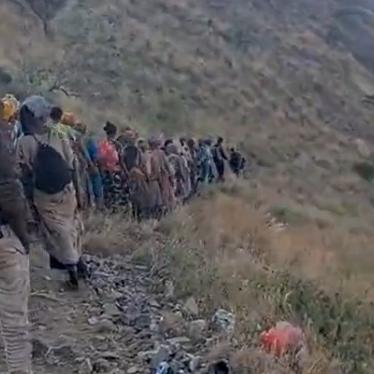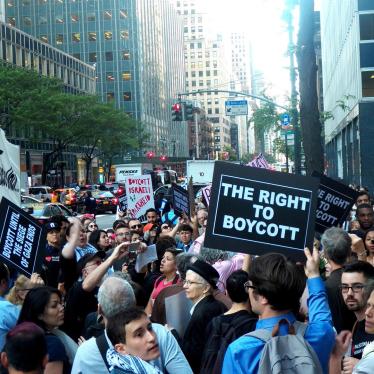I am writing in response to your July 25 comments about the recently published Human Rights Watch report, Bad Dreams: Exploitation and Abuse of Migrant Workers in Saudi Arabia. According to the article published the next day in Arab News, you characterized the report as “unbalanced” and “exaggerated.”
Human Rights Watch would welcome the opportunity to meet with you and other labor ministry officials to discuss the findings and recommendations of our report.
I must state at the outset that our report does not make the claim that every
foreign worker in Saudi Arabia is exploited or abused. In fact, the second
paragraph of the report’s Summary says this: “It is undeniable that many
foreigners employed in the kingdom, in jobs from the most menial to the highest skilled, have returned home with no complaints.” That said, we found, and we stand behind these findings, that low-paid foreign workers – the most vulnerable segment of the expatriate community – have faced abuses that are serious, systemic, and long-standing. These are not isolated cases.
As you may know, your government until now has not authorized Human Rights Watch to carry out research in the kingdom. Therefore, to prepare our recent report, we collected testimonies from Asian men and women who had worked in a wide variety of low-skilled and skilled professions in locations throughout the kingdom, from Jeddah to Riyadh to Dammam. We interviewed these returned workers separately from one another, in their home countries, over many months during 2003. What we found, after careful analysis of this testimonial data, were patterns of abuse that cut across gender, ethnic, and religious lines.
In your quoted remarks, you stated that most of the abuses cited in our report
are criminal offenses under the kingdom’s laws. Certainly, one of the most
prevalent abuses of low-paid foreign women workers that we documented --
long-term forced confinement at places of work and residence -- is not a criminal offense. As we explain in our report, this practice violates the basic human right to freedom of movement, and also places these women in situations of extreme vulnerability, in terms of both personal safety and exposure to sexual violence from which it may be difficult or impossible to escape. The government should no longer tolerate this practice, and it should be made a criminal offense under the law for any foreign worker to be held against his or her will.
Beyond the various labor-related abuses that the report documents, Human Rights Watch is also deeply concerned about the problems that foreign workers reported when they came into contact with the criminal justice system. These included accounts of prolonged incommunicado detention, torture and mistreatment under interrogation, coerced confessions, and trials that did not meet minimum international standards of fairness. These serious abuses are the subject of a separate set of recommendations to HRH Crown Prince Abdullah and other senior government officials. We called upon Saudi authorities, for example, to bring the interior ministry’s arrest and detention practices into immediate conformity with the kingdom’s international legal obligations under the Vienna Convention on Consular Relations, which establishes the right of consular officials to prompt notification about the arrest of their nationals. We also urged the implementation of effective judicial oversight of interior ministry personnel with custodial responsibility for criminal suspects who have been arrested and detained.
We look forward to a reply at your earliest convenience, and hope that it will be possible to discuss our findings and recommendations with you in the near future.
Sincerely,
Sarah Leah Whitson
Executive Director
Middle East and North Africa Division







